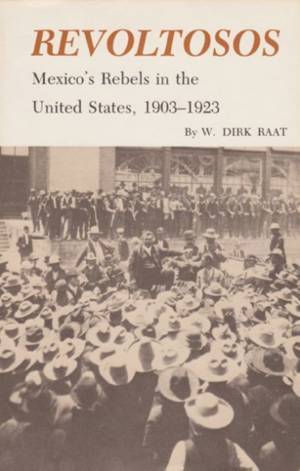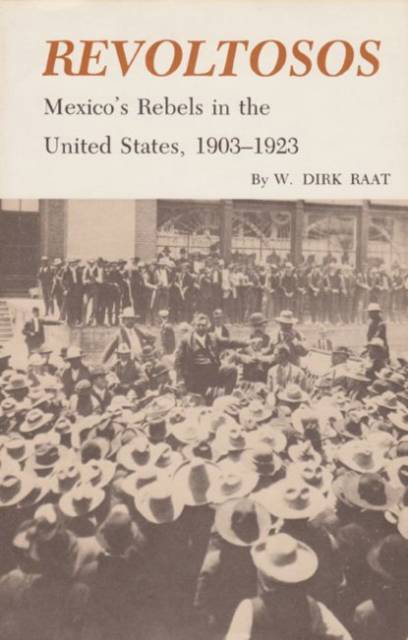
- Afhalen na 1 uur in een winkel met voorraad
- Gratis thuislevering in België vanaf € 30
- Ruim aanbod met 7 miljoen producten
- Afhalen na 1 uur in een winkel met voorraad
- Gratis thuislevering in België vanaf € 30
- Ruim aanbod met 7 miljoen producten
Zoeken
€ 34,45
+ 68 punten
Omschrijving
As a study of rebels and authority, of revolution and the suppression of revolution, Revoltosos examines the activities of Mexican rebels in the United States between the Immigration Act of 1903--and attempt to exclude "anarchists"--and the end of the Red Scare in the early 1920s. The revoltosos were insurgents and political refugees, of the right wing as well as the left, who used the United States as a base for their opposition to the dictatorship of Porfirio Díaz and the succeeding governments of Madero, Huerta, and Carranza. As exiles and rebels, the revolotosos were the objects of suppression by both American and Mexican authorities, who devised a binational police and espionage system that included American private detectives in the pay of Mexico and U.S. immigration, consular, and secret service personnel. Since most revoltoso activity was within the law, the U.S. government's actions were extreme, even for a time of nativism, antiradicalism, and war hysteria, and the use of illegal means to suppress legal actions was a serious threat to civil liberties. W. Dirk Raat has made extensive use of archival materials on both sides of the border, including documents only recently made available through the Freedom of Information Act. Thus, he is able to cast new light on a significant era in the history of both countries.
Specificaties
Betrokkenen
- Auteur(s):
- Uitgeverij:
Inhoud
- Aantal bladzijden:
- 368
- Taal:
- Engels
Eigenschappen
- Productcode (EAN):
- 9781585440498
- Verschijningsdatum:
- 1/06/2000
- Uitvoering:
- Paperback
- Formaat:
- Trade paperback (VS)
- Afmetingen:
- 154 mm x 230 mm
- Gewicht:
- 607 g

Alleen bij Standaard Boekhandel
+ 68 punten op je klantenkaart van Standaard Boekhandel
Beoordelingen
We publiceren alleen reviews die voldoen aan de voorwaarden voor reviews. Bekijk onze voorwaarden voor reviews.











